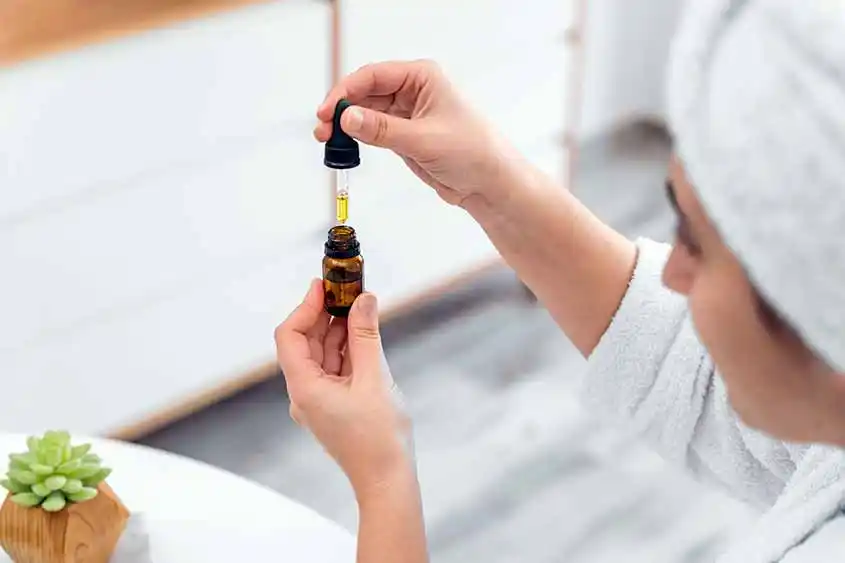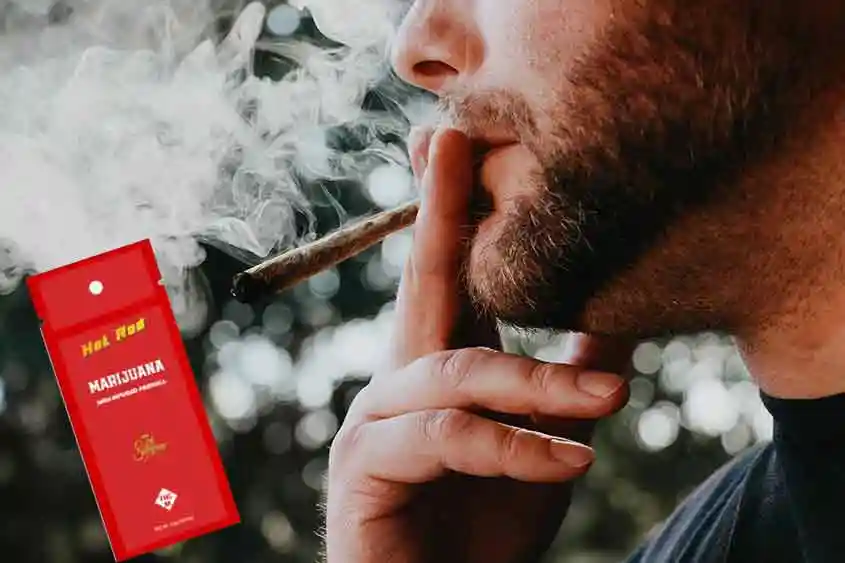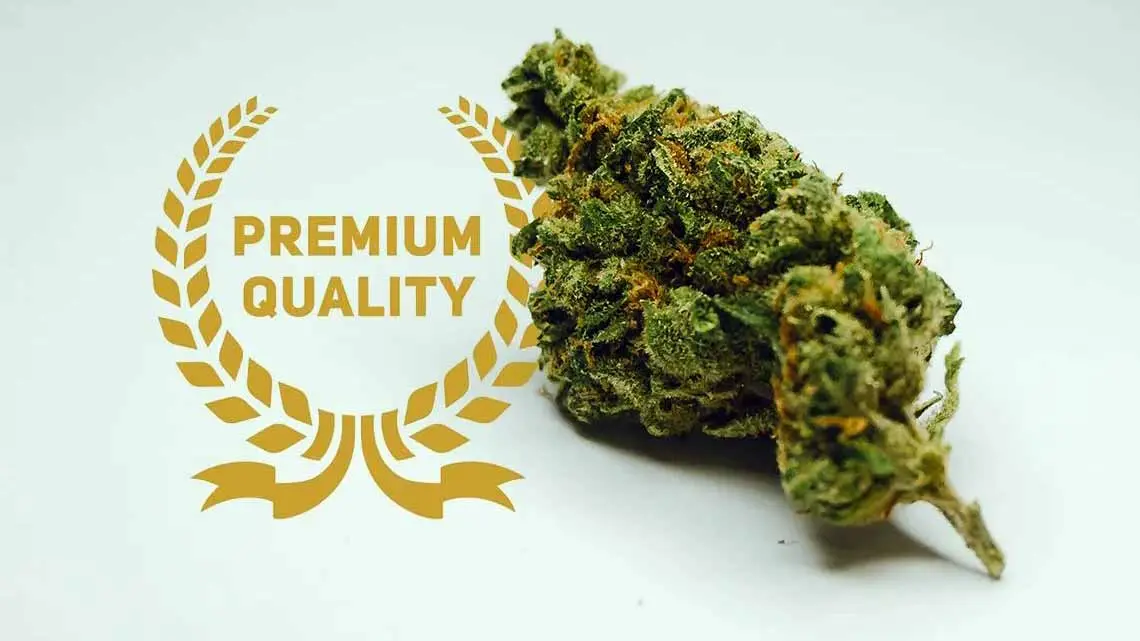Cannabis for anxiety disorder? Anxiety disorders can have a significant negative impact on a person’s mental health. They can potentially lead to issues like low self-esteem, depression, and even long-term suicidal tendencies. The burden of anxiety can profoundly affect daily life and overall well-being. However, in recent years, medical cannabis has emerged as a potential remedy! It has helped alleviate symptoms of anxiety, offering hope to those seeking alternative treatments.
Cannabis has long been recognized for its ability to relieve anxiety. This is supported by numerous research studies highlighting the effectiveness of cannabinoids. In particular, CBD (cannabidiol) and THC (tetrahydrocannabinol) have been used to reduce anxiety symptoms. This natural approach to anxiety management has gained traction among individuals seeking holistic and personalized solutions. In this blog post, we will look at the causes of anxiety, exploring the complex factors that contribute to this condition. Additionally, we will examine how medical marijuana interacts with the body’s endocannabinoid system to aid in managing anxiety disorders. Finally, we will introduce six cannabis strains that have garnered a reputation for their effectiveness in treating anxiety.
What Causes Anxiety Disorder?
Anxiety can arise from a variety of factors, each contributing to feelings of unease and worry. These factors may include persistent stress from work, relationships, or life pressures. Also, underlying mental or physical conditions such as generalized anxiety disorder (GAD) or chronic illnesses can cause anxiety. Additionally, traumatic life events like the loss of a loved one or financial struggles can trigger intense anxiety symptoms. In some cases, substance abuse or certain medications may also exacerbate feelings of anxiety.
Persistent Stress
Persistent stress from work, relationships, or life pressures can have a profound impact on mental health. When stress becomes chronic and overwhelming, it often leads to the development of anxiety disorders. The body’s natural response to stress involves the release of hormones like cortisol and adrenaline. These hormones, over time, can disrupt brain chemistry and contribute to heightened anxiety levels.
Mental or Physical Conditions
Underlying mental health conditions such as generalized anxiety disorder (GAD), panic disorder, or post-traumatic stress disorder (PTSD) can manifest as anxiety. These conditions are characterized by persistent feelings of fear, worry, or distress that interfere with daily life. Additionally, certain physical conditions such as thyroid imbalances, cardiovascular issues, or chronic pain can also contribute to heightened anxiety levels. When the body is dealing with physical health challenges, it can cause feelings of unease and amplify existing anxiety symptoms.
Undesirable Life Events
Experiencing traumatic events stemming from emotional or physical abuse can trigger intense anxiety. For example, the loss of a loved one, or life changes like divorce or job loss are difficult to digest. These events disrupt a person’s sense of security and stability, leading to persistent worry and fear about the future. Coping with the aftermath of such events can be challenging and may require professional support to manage anxiety effectively.
Problematic Financial Situation
Financial struggles such as debt and unemployment, can create a constant state of anxiety about the future and financial responsibilities. The uncertainty and pressure associated with financial challenges significantly impact mental well-being. No wonder, they can contribute to the development of anxiety disorders. Constantly worrying about making ends meet or dealing with financial hardships can be overwhelming. The result can only be persistent feelings of anxiety and stress.
Consumption of Drugs
The use of substances like alcohol, caffeine, nicotine, or recreational drugs can increase feelings of anxiety and restlessness. While these substances may provide temporary relief or escape, they can disrupt brain chemistry and worsen anxiety symptoms over time. Alcohol, for example, is a depressant that can affect mood and increase feelings of anxiety, especially during withdrawal periods. Similarly, excessive caffeine consumption can lead to jitteriness and increased heart rate, mimicking symptoms of anxiety. Long-term use of drugs or alcohol can have detrimental effects on mental health. So, they need to be addressed as part of a comprehensive approach to managing anxiety.
Understanding these potential causes is essential to identify anxiety triggers. Once triggers are identified, next come effective strategies to manage anxiety and improve overall well-being. Seeking professional help from a healthcare provider or therapist can provide valuable support in addressing underlying issues contributing to anxiety.
How Medical Marijuana Can Help Manage Your Anxiety Disorder

An understanding of the intricate ways in which marijuana interacts with the body is crucial to understanding its therapeutic effects. The endocannabinoid system plays a fundamental role in regulating various physiological processes, including mood, stress response, and emotional balance. Cannabinoids in marijuana interact with receptors throughout the brain and body.
Interaction with the Endocannabinoid System
Medical marijuana contains cannabinoids like THC (tetrahydrocannabinol) and CBD (cannabidiol) that interact with the body’s endocannabinoid system. This system comprises cannabinoid receptors (CB1 and CB2) located throughout the brain and body. Cannabinoids from marijuana tend to bind to these receptors. Consequently, they modulate neurotransmitter release and influence pathways involved in mood, stress response, and emotional regulation.
The endocannabinoid system plays a pivotal role in maintaining homeostasis, including regulating stress and anxiety. By interacting with this system, medical marijuana can potentially restore balance and alleviate symptoms of anxiety.
Similarity to FDA-Approved Anxiety Disorder Medications
Research indicates that medical marijuana affects the endocannabinoid system much like the action seen with FDA-approved anxiety medications. Both target neurotransmitter systems implicated in anxiety disorders, suggesting that medical marijuana may offer a novel approach to anxiety treatment.
Effectiveness of CBD in Stress Management
CBD is a non-intoxicating cannabinoid in marijuana. It has shown promise in stress management. Studies suggest that CBD modulates serotonin receptors in the brain, which play a crucial role in anxiety regulation. By enhancing serotonin signaling, CBD promotes relaxation and reduces hyperactivity in brain regions associated with anxiety.
Calming and Relaxing Properties
Medical marijuana is renowned for its calming and relaxing effects. These effects are attributed partly to its ability to reduce cortisol levels—the primary stress hormone. Lower cortisol levels contribute to a sense of tranquility and ease, offering relief from anxiety symptoms.
Safe Use under Medical Supervision
Using medical marijuana for anxiety should be supervised by a qualified healthcare professional. They can provide personalized recommendations based on individual needs, monitor treatment response, and minimize potential side effects. This ensures safe and effective anxiety management with medical marijuana as part of a comprehensive treatment plan.
The interactions between medical marijuana and the body’s systems shed light on its potential therapeutic role in anxiety management. All in all, it provides alternative options for individuals seeking relief from anxiety symptoms.
What Type of Cannabis Can Help Relieve Anxiety Disorder?

Choosing the right type of cannabis for anxiety disorder relief involves considering various factors. Primarily, the balance of cannabinoids and terpenes present in different strains contributes to different effects. Cannabinoids such as CBD (cannabidiol) and THC (tetrahydrocannabinol) play key roles in the therapeutic effects of cannabis. CBD is known for its calming and anti-anxiety properties, while THC can have both therapeutic and psychoactive effects. When selecting a cannabis strain for anxiety, it’s essential to consider the ratio of CBD to THC.
CBD-Dominant Strains
Cannabis strains that are high in CBD (cannabidiol) and low in THC(tetrahydrocannabinol) are often preferred for anxiety relief. CBD is a non-intoxicating compound known for its potential therapeutic effects, including reducing anxiety. Also, it is known to induce relaxation, without causing the psychoactive “high” associated with THC. Research suggests that CBD interacts with serotonin receptors in the brain, which regulate mood and anxiety levels.
Balanced CBD/THC Strains
Some individuals may benefit from strains with a balanced ratio of CBD to THC. This balance can provide a mild euphoric effect from THC while harnessing the calming properties of CBD. The combination of both cannabinoids may offer anxiety relief without inducing excessive intoxication or impairing cognitive function.
Strains Rich in Myrcene and Linalool
Myrcene and linalool are terpenes found in certain cannabis strains known for their calming and sedative effects. Myrcene is believed to enhance the effects of cannabinoids like CBD and can contribute to feelings of relaxation. Linalool, with its floral aroma, has been studied for its potential anti-anxiety properties. Strains rich in these terpenes, such as Granddaddy Purple or Lavender, are beneficial for reducing anxiety and promoting relaxation.
Avoid High-THC Strains
For individuals sensitive to THC or prone to THC-induced anxiety, it’s advisable to avoid strains that are high in THC. Excessive THC consumption can lead to heightened anxiety, paranoia, and rapid heart rate in some individuals. Opting for strains with lower THC content or higher CBD-to-THC ratios may be more suitable for anxiety management.
Consider Indica or Indica-Dominant Hybrid Strains
Indica or Indica-dominant hybrid strains are usually the preferred choice for anxiety relief due to their potential to induce relaxation and sedation. These strains may help calm the mind and body, making them beneficial for reducing anxiety symptoms. However, individual responses to different strains can vary. So, experimentation under medical supervision is recommended to find the most effective strain for anxiety relief.
Consultation with Healthcare Professionals
It’s crucial to consult with healthcare professionals who are knowledgeable about cannabis use for anxiety management. They can provide personalized recommendations based on individual needs, preferences, and medical history. The intent, of course, is to ensure safe and effective treatment with cannabis for anxiety disorder relief.
Understanding the different types of cannabis and their potential effects on anxiety can empower individuals with anxiety. Once they can make informed decisions about incorporating cannabis into their anxiety management strategies, they are in a better place! Ultimately, the safe consumption of cannabis can lead to improved overall well-being and quality of life.
Six Cannabis Strains to Help with Anxiety

Finding the right cannabis strain for anxiety relief involves considering the balance of CBD, THC, and other compounds. When used in the right combination, they contribute to therapeutic effects.
ACDC
ACDC is renowned for its high CBD levels. This makes it an excellent choice for anxiety relief without the intoxicating effects of THC. CBD provides calming and anti-inflammatory effects, helping to reduce stress responses. Additionally, compounds like myrcene and beta-caryophyllene present in ACDC contribute to its anxiety-alleviating properties by promoting relaxation.
Harle-Tsu
Harle-Tsu is a popular strain among individuals with anxiety disorders. It has high CBD content (around 13%) and minimal THC (less than 1%). This strain offers the therapeutic benefits of CBD without causing psychoactive effects, making it suitable for anxiety management.
Ringo’s Gift
Ringo’s Gift is a hybrid strain combining ACDC and Harle-Tsu. The result is a high-CBD profile effective for treating stress and anxiety-related conditions. This strain too, can enhance overall quality of life by promoting relaxation and easing anxiety symptoms.
Purple Urkle
Purple Urkle is beneficial for anxiety-linked insomnia and intrusive thought patterns. Despite its higher THC content, Purple Urkle’s combination of pinene and myrcene contributes to its use for anxiety. It has proved to help improve sleep quality and relaxation, aiding in anxiety reduction.
Granddaddy Purple
Granddaddy Purple is recognized for its deeply relaxing properties. It is ideal for individuals experiencing stress-related insomnia and muscular tension caused by anxiety. It is a THC-dominant hybrid containing linalool and camphene. The result is a strain with calming and stress-alleviating effects, providing relief from evening-time stress and panic attacks.
Remedy
Remedy is a high-CBD strain known for its effectiveness in treating insomnia and soothing anxiety. This strain promotes relaxation of the body and mind, facilitating a restful night’s sleep.
It’s important to note that individual responses to cannabis strains may vary. Consulting a qualified healthcare professional is essential before using any cannabis strain for anxiety management. Healthcare professionals can provide personalized recommendations and guidance to ensure the safe and effective use of medical cannabis.
Conclusion
Selecting the appropriate cannabis strain for anxiety management requires careful consideration and consultation with a healthcare professional. Each strain discussed offers distinct benefits based on its cannabinoid and terpene composition.
CBD-dominant strains like ACDC, Harle-Tsu, and Ringo’s Gift are ideal for anxiety relief without psychoactive effects. They provide calming and anti-inflammatory properties, promoting relaxation and stress reduction. For those experiencing anxiety-related insomnia or muscle tension, strains with higher THC content and calming terpenes can reduce these symptoms.
Consult a healthcare professional before using cannabis products; the advice provided is not a substitute for medical guidance.

